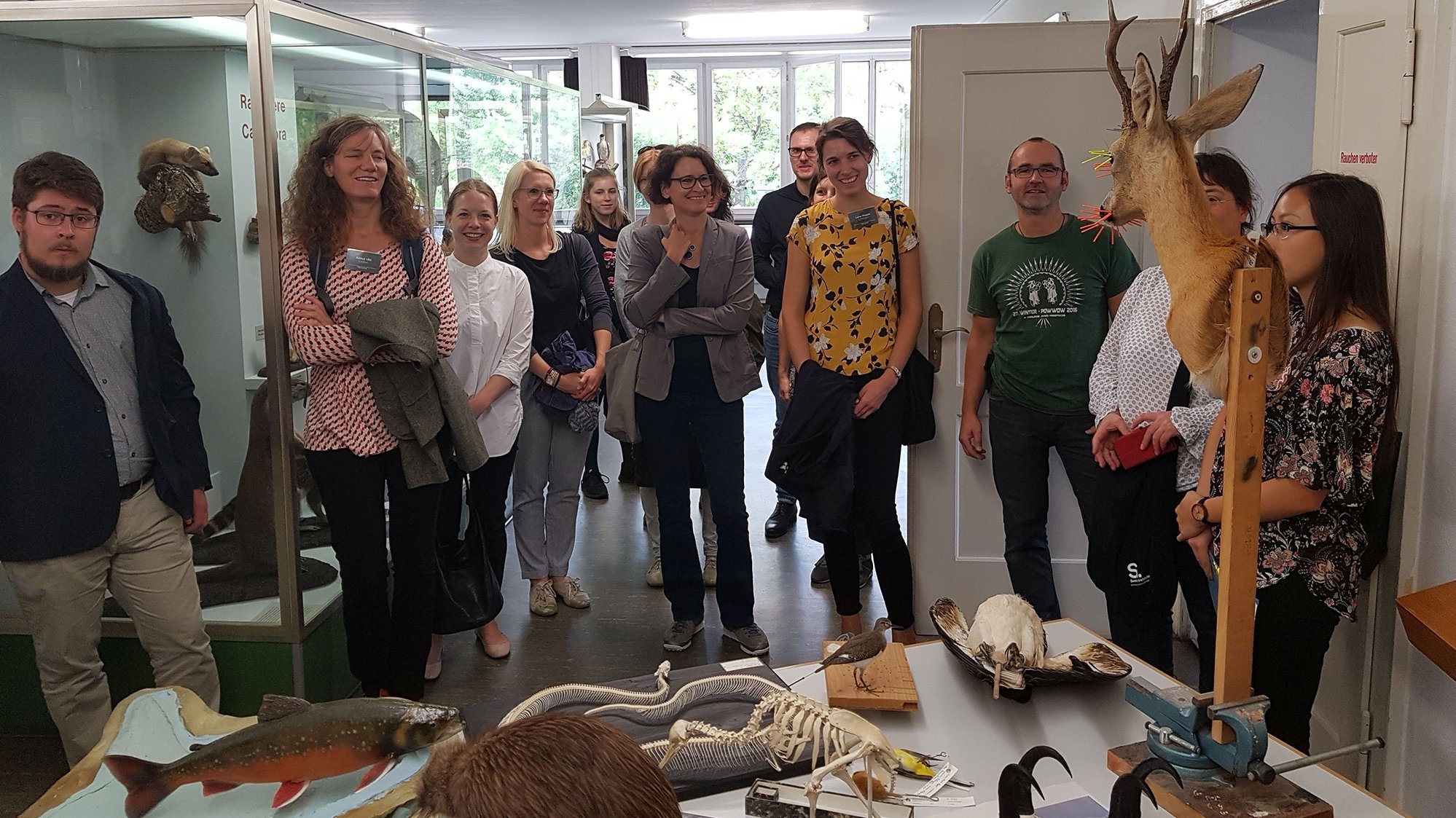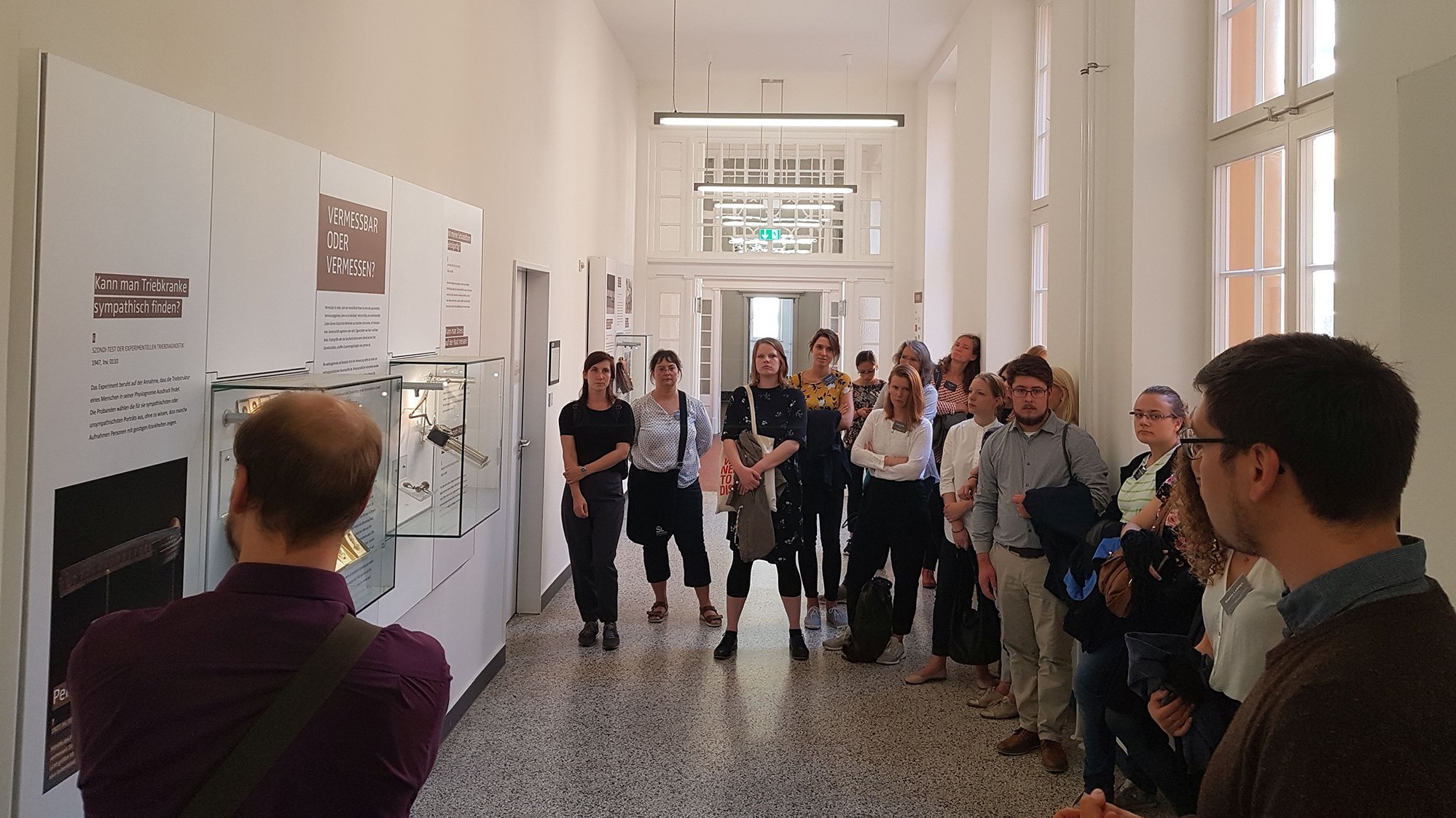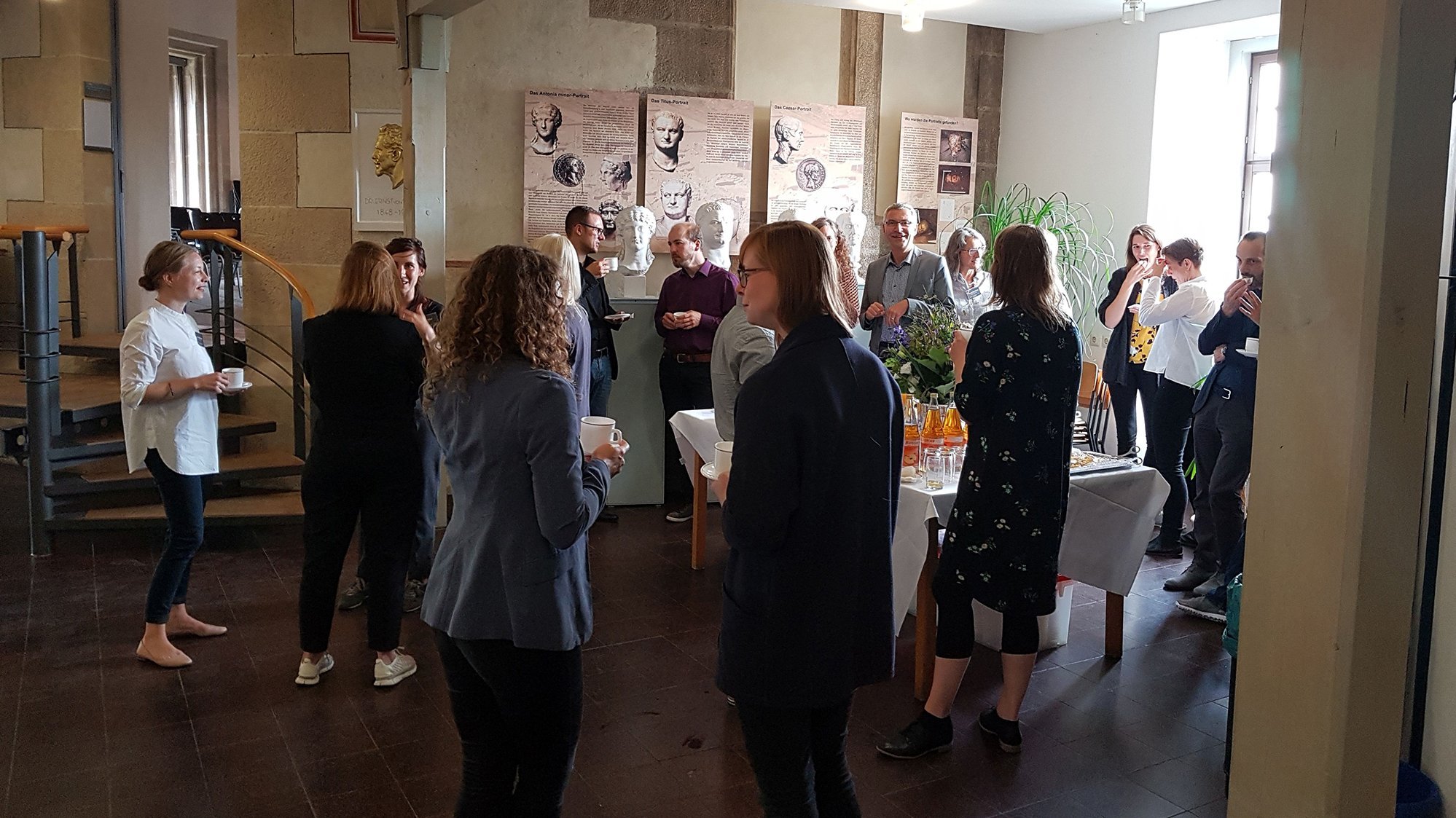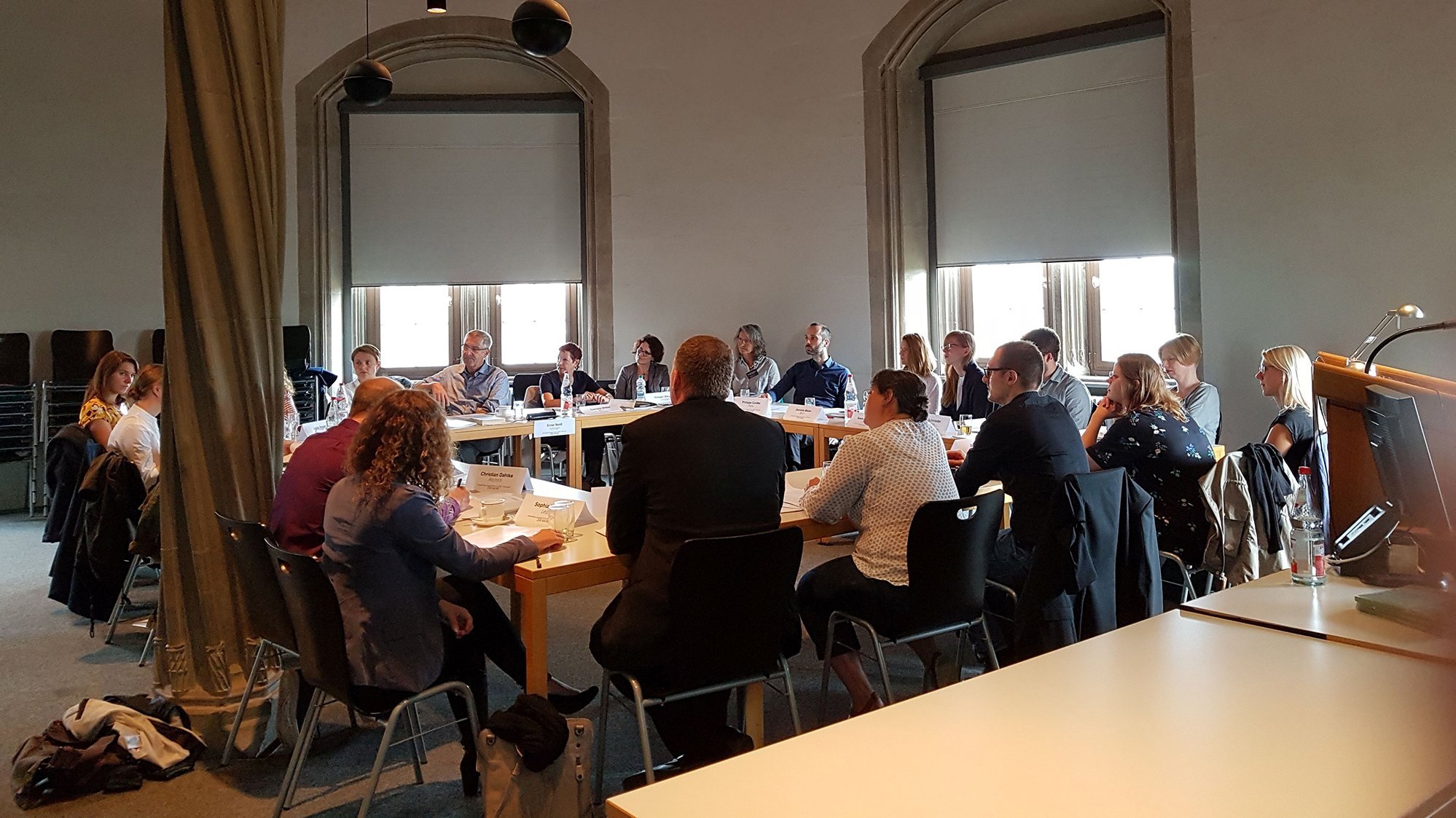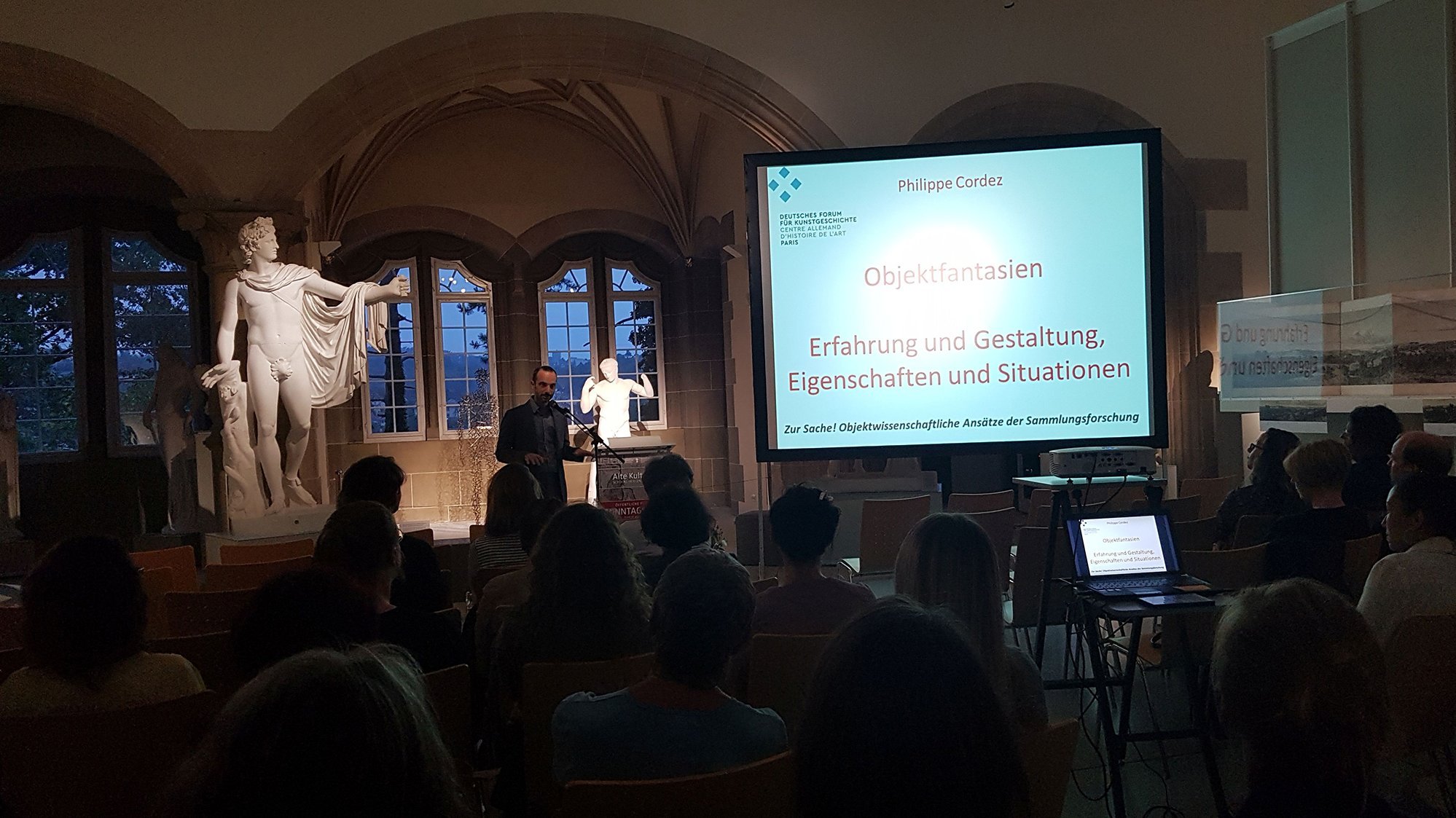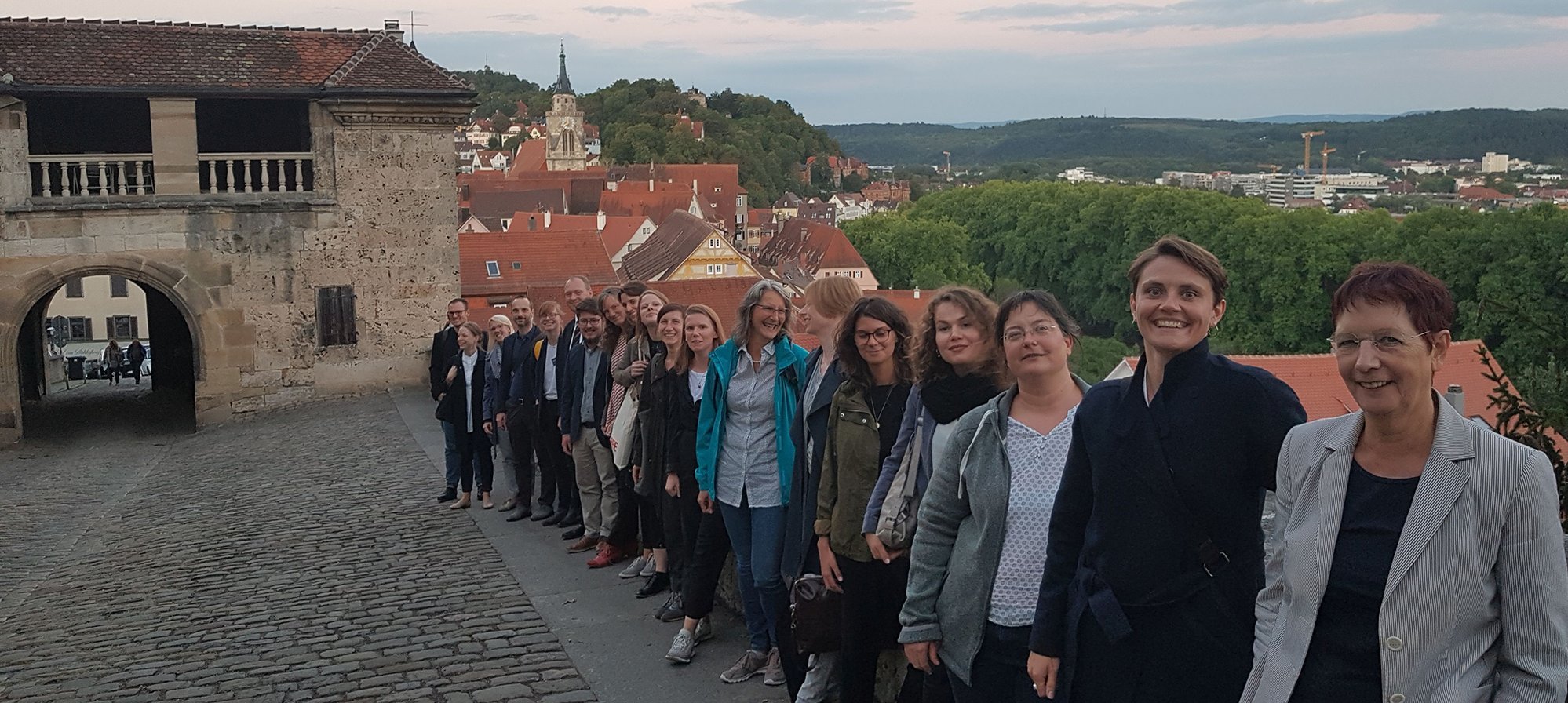Young Forum for Collection and Object Research
The platform „Junges Forum für Sammlungs- und Objektforschung“ (Young Forum for Collection and Object Research) is a joint project of the Gesellschaft für Universitätssammlungen e.V. and the universities and museums of Berlin, Göttingen, Tübingen, Dresden, Halle-Wittenberg, Erlangen-Nuremberg, Gießen and Bremerhaven. It centers around questions, methods and results of object-based research, particularly in scientific collections.. The establishment of such a platform strengthens work with (university) collections and offers young researchers the opportunity to acquire important methodological skills in dealing with objects. The events further promote networking and interdisciplinary exchange between young researchers and with experts. The annually workshop series, established in 2016, and the resulting publications, edited by Ernst Seidl, Frank Steinheimer and Cornelia Weber, are kindly funded by the VolkswagenStiftung.
Zur Sache! Objektwissenschaftliche Ansätze der Sammlungsforschung
To the matter! Object-scientific approaches to collection research
Under the motto “To the matter! Object-scientific approaches to collection research”, the Museum of the University of Tübingen and the Gesellschaft für Universitätssammlungen e. V. hosted the third workshop in the series in Tübingen from September 6th to 8th. Young scientists (graduates and doctoral students) from all disciplines working on material objects and scientific collections were invited. During the workshop, scientific questions, methods and results were presented and discussed interdisciplinarily with other young scholars and experts. All participants were also involved in the resulting publication:
Ernst Seidl, Frank Steinheimer and Cornelia Weber (ed.), Zur Sache! Objektwissenschaftliche Ansätze der Sammlungsforschung, Junges Forum für Sammlungs- und Objektforschung 3, Berlin 2019. (http://dx.doi.org/10.18452/21155)
Topic
The increased attention and re-evaluation of scientific collections at universities, colleges and academies in recent years has also considerably increased the relevance of the material object as scientific evidence, especially in relation to written documents and images. Nevertheless, there is still a lack of theoretical foundations for the scientific processing of collection and object situations or even common methodological ideas that go beyond individual specialist cultures. This is especially true when a material object is given only the character of an image, thus excluding an important part of its potential for knowledge. Even decades of setting analytical priorities, such as the material turn, weren't able to change that.
Here, the concreteness of the objects are questioned. This presupposes that the object is not merely a substitute, but a crucial part of reality – moreover, that it represents its own form and quality of reality. The object has properties, is assigned function and meaning. As medium, means, tool or artwork, it possesses an independant right to be researched and understood. Many objects materialise an immaterial thought construct that is difficult to capture any other way. Even images or our language, which is usually the best at conveying complex theoretical contexts, can't match or replace the potential of the material object. For it is often only the object that allows a multitude of theories, facts, connections and considerations of uses and periods of time to become visible at all, to make them materially ‘tangible’, and to initiate processes of cognition. In a nutshell: Not only are libraries, archives and image collections teaching and research infrastructures worth of preserving and developing, but so are many object collections.
Scientific collections at universities offer a wide range of opportunities: as a material value per se, as cultural heritage of the university, as direct source or research infrastructure, as teaching materials and teaching infrastructure, for the concretisation of subject-specific content, for interdisciplinary and practical qualification opportunities, for the profile and image building of the university, for an optimised educational policy perception at the level of the sponsor, i.e. usually the state, for improved public visibility and thus for opening up and positively changing the perception of a university that is often regarded as hermetic from the outside – to name only the most important potentials. The question arises wether, beyond the individual perspectives of the history of the subject and the history of science, there is an interdisciplinary methodological focus that can point to collection-specific, i.e. 'object-scientific' ways forward. This workshop sheds light on the relevance of objects: Form, materiality, dimension, context of origin, concrete use, spatial capacity, contemporary witness, representational function, aesthetic appeal and many other object-specific properties can thus become clearer from a variety of disciplinary perspectives. Abstracts from all disciplines, including the natural sciences, have been invited to participate in the discussion, in order to define the foundations of the object studies tendencies.
Teilnehmende Expert*innen
- Dr. Philippe Cordez, Paris
- Dr. Stefanie Klamm, Berlin
- Dr. Renate Schafberg, Halle (Saale)
- Kirsten Vincenz, Dresden
- Dr. Cornelia Weber, Berlin
- Prof. Dr. Ernst Seidl, Tübingen
| 13:00 Uhr | Greetings, introduction Prof. Dr. Ernst Seidl, Tübingen Dr. Cornelia Weber, Berlin |
| 13:30 Uhr | Universal collections as special case Marcel Kellner, Berlin Document cabinett of European History, Present and Future Planning |
| 14:15 Uhr | History and Change of Function Felix Schmieder, Erlangen Object vs. Narrative |
| 15:00 Uhr | Break |
| 15:30 Uhr | Form of the instruments Susanne Thürigen, Dresden „Ideas made of brass“ – Scientific instruments in book form
|
| 16:15 Uhr | Object Provenance and Ideology Janina Piech, Wien Collection Ideology and Historiography – Digitalisation of historical materials in the Central Institute for Theatrical Science 1943–1945 |
| 17:00 Uhr | Break |
| 17:30 Uhr | Guided Tour (optional) Prof. Dr. Ernst Seidl, Tübingen City, University, Hohentübingen Castle and the Museum Ancient Cultures |
| 19:30 Uhr | Public Evening Lecture Dr. Philippe Cordez, Deputy Director of the German Forum for Art History, Paris Object Fantasies. Experience and Design, Properties and Situations Place: Knights' Hall/Hohentübingen Castle – followed by a reception |
| 09:00 Uhr | Material Iconography Johanna Lessing, Berlin Looking for “earth”. A knowledge history of material and lack of material in the collections of the Museum of Natural History and the Humboldt University Berlin |
| 09:45 Uhr | Material Histories Anne Biber, Wien Black Box Plastic? Identification and contextualisation of historical plastics based on their colour design, using the example of a founding collection of the Vienna Museum of Technology (TMW) |
| 10:30 Uhr | Colour as material and object Marc Holly, Köln The world becomes colourful – Research on the pigment collection at the Niederrhein University of Applied Sciences |
| 11:15 Uhr | Break |
11:45 Uhr | Object Transformation Anna Behrend, Dortmund Transformation as pattern of consum. Altered clothing as a source of object-based clothing research |
| 12:30 Uhr | The historical-didactic Object Julia Schuppe, Bonn Object collection as collection of memory and meaning |
| 13:15 Uhr | Break |
| 14:15 Uhr | Workshop Visit Jürgen Rösinger, taxidermist, Institute for Evolution and Ecology/Zoological Collection Animal objects work in progress – A look into the taxidermy workshop |
| 14:45 Uhr | Guided Toor Dr. Frank Dürr, Tübingen Exhibition „Mind|Things“ – Objects of Psychology |
| 15:30 Uhr | Object and Collection History Lena Hoppe, Göttingen Presentation of the dissertation project „guild cups“ |
| 16:15 Uhr | Object Category and Object Surface Sophia Ludolph, Leipzig Ideologies and cups |
| 17:00 Uhr | Break |
| 17:30 Uhr | Moulages as moulds Christian Dahlke, Rostock Material medical history – Object information analysis, using the example of the Rostock Moulages Collection |
| 18:15 Uhr | Copies as Object Daniela Maier, Bern Object plurality as challenge for collection and object research, using the example of galvanoplastic replicas in 19th century museums of applied arts |
| 19:00 Uhr | Object Biography Almut Uhl, Gießen The herbarium: Object and evidence of research. Studies on the Herbarium Erlangense and its founder Wilhelm Daniel Joseph Koch |
| 20:00 Uhr | Conference dinner |
| 09:00 Uhr | Key Note Dr. Stefanie Klamm, Berlin 3D instead of “flat ware”. Photo objects – photography as material objects |
| 09:45 Uhr | Object Status of Photography Marina-Elena Heyink, Berlin Photographic objects of the Stuttgart Badakshan Expedition 1962–1963: A travelogue |
| 10:30 Uhr | The Surface of Photography Kristin Funcke, Tübingen The object-character of photography – Practices on the autonomy of the photographic image, using the example of the Swiss photographer Balthasar Burkhard |
| 11:15 Uhr | Break |
| 12:15 Uhr | The Material of Paper Dr. Regina Jucknies, Reykjavík/Köln Paper trails – A material and object history of Islandic paper |
| 13:00 Uhr | The Material of the Image Karina Dipold, Tübingen Measured hands – The hand prints of the “Litzmanstädter Jews” as part of race anthropology's material culture |
| 13:45 Uhr | Conclusion Prof. Dr. Ernst Seidl, Tübingen Dr. Cornelia Weber, Berlin |



![[Translate to Englisch:] Poster mit den weiter oben genannten Titel und Daten zum Workshop](/fileadmin/_processed_/8/1/csm_ZurSache_28-08-18_cdd13cfc87.jpg)
